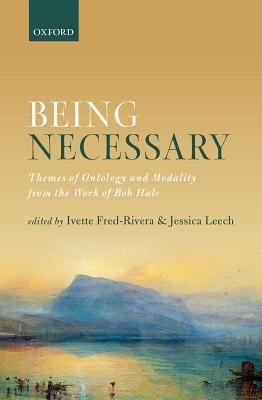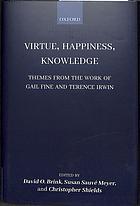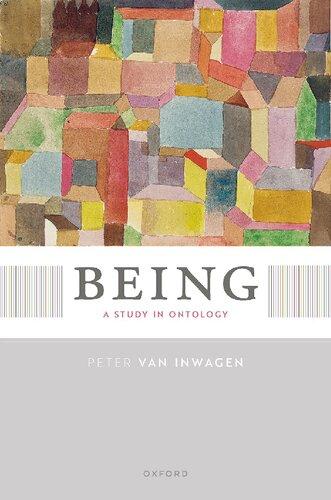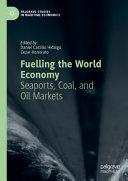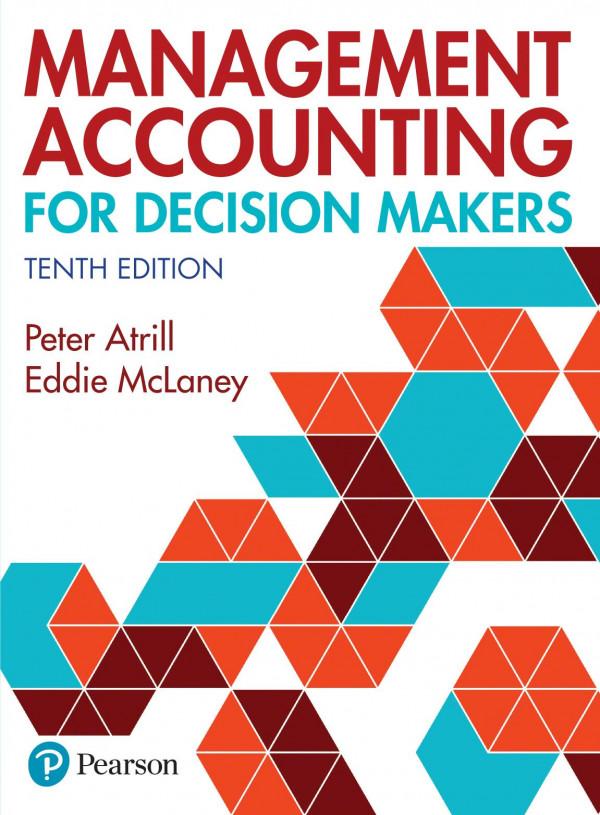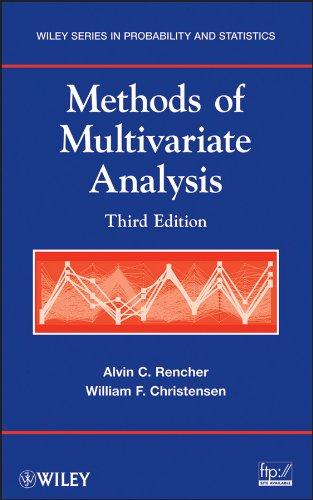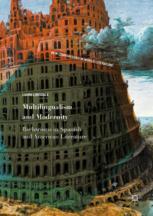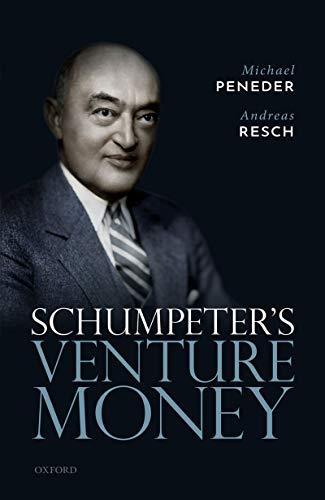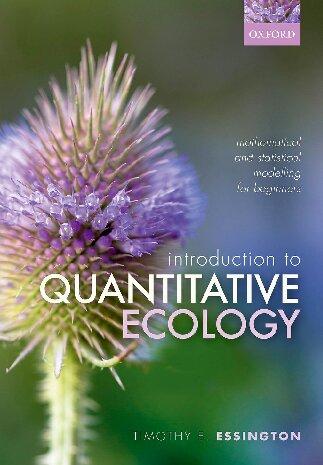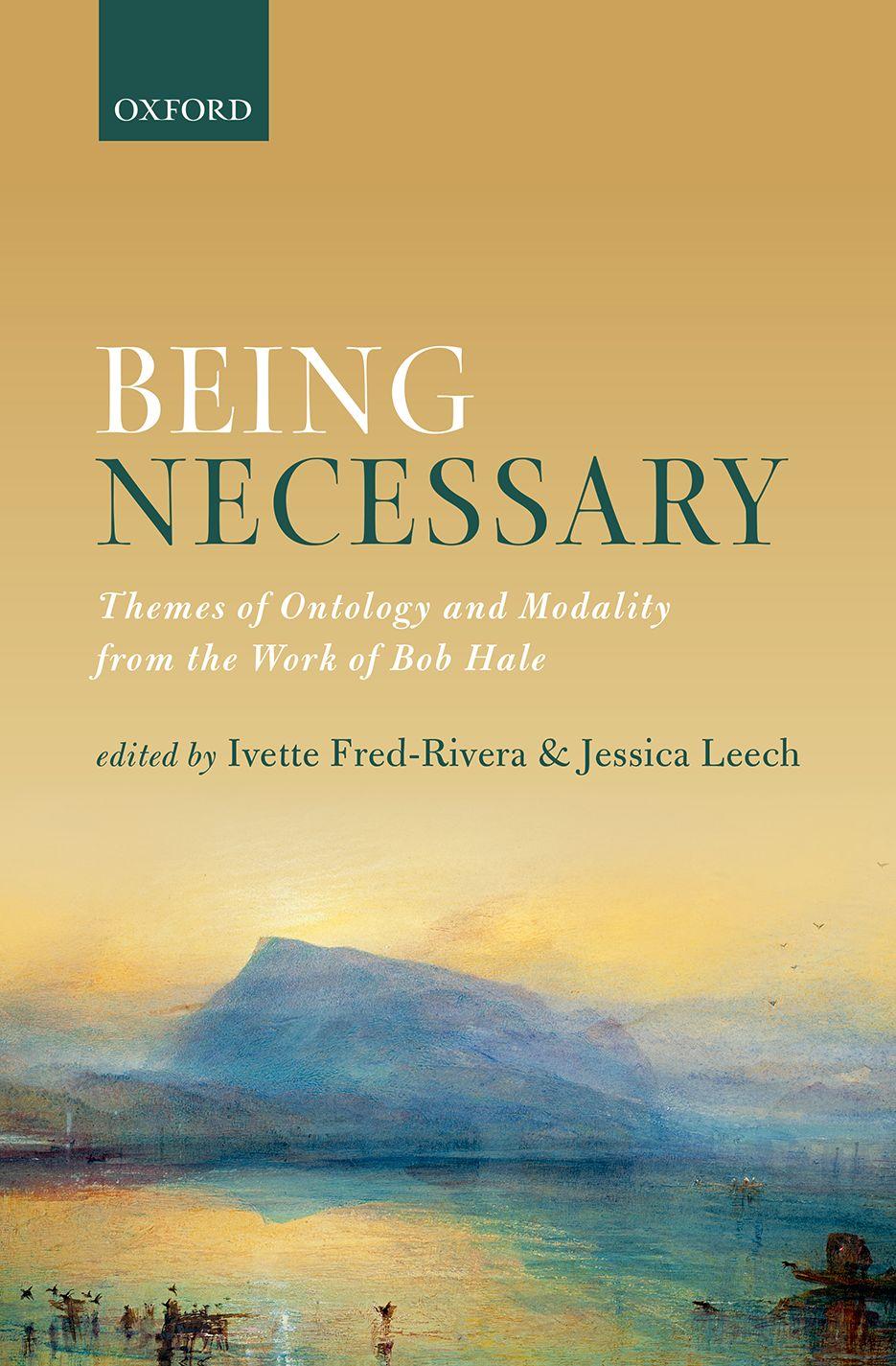Introduction
IvetteFred-RiveraandJessicaLeech
Ontologyisthephilosophicalstudyofwhatthereis.Inpractice,thisamountsto morethanitmightseem.Ontologyisn’tsimplypresentinganinventoryofmediumsizeddrygoods:ittypicallyinvolvesquestionsconcerningthe kinds ofentitiesthere are.Arethereuniversals,orcanweaccountforcategorizationintermsofconcepts, language,orsets?Aretherereallythingsliketables,oraretherejust ‘particles arrangedtable-wise’?Arethereobjectsmadeupofafusionofanythingswhatsoever, orarethereconstraintsoncomposition?IsthereanobjectthathastheEiffelTower andAngelaMerkelasitsonlytwoparts,ornot?Doallentitieshavealocationin spaceandtime,orarethereabstractentitiesthatdonot?
Modalityconcernspossibility,necessity,andcognatenotions.Wetypicallythink thattherearesomethingsthatarethecase,butthatcouldhavebeenotherwise for example,thatBarackObamabecamepresidentoftheUnitedStatesofAmerica and somethatarethecasebutalsocouldnothavebeenotherwise forexample,that2 and2make4,orperhapsthatBarackObamaisahumanbeing(ifhehadbeen anythingotherthanahumanbeing,sothethoughtgoes,thatwouldnothavebeen theverysamethingas Obama).Themetaphysicsofmodalitytakesonthechallenge toexplaintheseapparentmodalfacts.Whatisitthatgroundsthefactthatsomething ismerelypossible,orthatitisnecessary,orimpossible?Aresuchmodalfactsmindindependent,ordotheydependonourownconceptualengagementwiththeworld, orthewayweuselanguagetotalkabouttheworld?Iftherearemind-independent modalmatters,canwereducethemtonon-modalfacts,orismodalityfundamental? Aretherefundamentallymodalpropertiesofobjects?Andsoon. Whatistherelationshipbetweenontologyandmodality:betweenwhatthereis, andwhattherecouldbe,mustbe,ormighthavebeen?Inthe firsthalfofthe twentiethcentury,distrustofmetaphysicsproducedanswersintermsoftheory, language,andconvention.Modalitywasreducedtomerelinguisticconvention, questionsofontologytochoicesbetweentheories,perhaps,onemightsay,tochoices betweenconventions.¹Quinefamouslyrejectedthisconventionalistapproach,notto
¹SuchaviewisoftenassociatedwiththinkerssuchasCarnap.Carnapdistinguishedbetweena linguisticframeworkortheoryintermsofwhichwecanaskinternalquestionsaboutentitiesandso forth,andexternalquestionsaboutthechoiceoftheoryorframework.Itistheframeworkthatdetermines whatmustorcanbetruewithinthatframework,buttheremaybeachoiceofframeworkexternaltothat. SeeCarnap(1950).
salvagenotionsofontologyandnecessity,buttocastevenmoredoubtontheir legitimacy.²Thereisperhapsaninterestingtaletotelloftherelationshipbetween ontologyandmodality,ifbothareconsideredlargelydefunct.Butthisbookwill answerthequestioninamorepositivelight.
Inrecentdecades,philosophershavetakenmetaphysicsmoreseriouslyasa substantivedisciplineinitsownright.Twobroadtraditionshaveemergedin whichtherelationshipbetweenontologyandmodalityhasalsobecomecentral. Firstly,theriseofanunderstandingofmodalityintermsofquanti ficationover possibleworlds,orotherentities,tiesmodalitytoaparticularontologyofthat domainofquantification.Ingeneral,necessityisunderstoodastruthinallworlds; possibilityastruthinatleastone;impossibilityastruthinnoworld.Inordertotake thisseriouslyasametaphysicalaccountofthenatureofmodality,onemustgivean accountofthekindsofthingsoverwhichoneisquantifying.Perhapsmostfamously, DavidLewis’smodalrealismclaimsthatworldsareconcrete,justlikeourown, actual,world.³Moreprecisely,forLewis,thereexistindividuals,setsofindividuals, andsumsofindividuals.Amaximalspatiotemporallyandcausallyrelatedsumof individualsisaworld.⁴ Worlds,therefore,donotbearspatiotemporalorcausal relationstoeachother,andtheydonotshareparts(theydonotoverlap).With thispurportedlyamodalontologyinplace,Lewispromisesnotonlytogivea reductiveaccountofmodality worldsarecharacterizedwithoutappealtomodal facts,andmodalityisanalysedintermsofquanti ficationoverthoseworlds butan accountofmanyotherthings.Forexample,propertiesaredefinedassetsofindividualsandpropositionsassetsofworlds.
WhilstLewis’smodalrealismisperhapsthebest-known,ormost-taught,version ofaworldsaccountofmodality,thereareotheroptions.Onemighttakeworldstobe properties,understoodaswaystheworldcouldbe(orcouldn’tbe),orpropositions thatdescribehowtheworldcouldbe(orcouldn’tbe).⁵ Butineachcase,westillface thechallengetogiveanaccountofthenatureandexistenceoftheworldsorworldlikeentitiesinthedomainofquanti fication.Inmanycases,thiswillalsoinvolve givinganaccountofwhensuchaworldis possible,e.g.,whenapropertyisawaythe world couldhavebeen,orwhenapropositiondescribeshowtheworld couldhave been,ratherthananimpossibility.Suchtheorieswillfailtoreducemodalityto ontology,andassuchmaybedeemedtobeinferiortoLewisianmodalrealism,but onemayquestionwhetherreductionisaworthygoalatallhere.⁶
This,then,isonemajorthreadoflatetwentieth-centuryphilosophythatwove togethermodalityandontology.Theotherbegan,perhaps,withKripke’srenewed confidencein dere necessity modalityofthings,notjustwords andtheassociated ideaofessence.⁷ Uponsuchaview,itisnaturaltothinkofentitiesashaving modalpropertiesinasubstantivesense(i.e.,inastrongersensethanthatthere
²See,forexample,Quine(1936),(1951),(1963).³SeeLewis(1986).
⁴ SeeDivers(2002)foraparticularlyclearpresentationofLewis’sview.
⁵ See,forexample,Forrest(1986),Hale(2013),chapter10,andStalnaker(2003)and(2012).
⁶ ThereisalsoaquestionwhetherreductionisachievableinthewayLewissuggests.SeeDiversand Melia(2002)andHale(2013),chapter3.
⁷ SeeKripke(1981).
aretruemodalstatementsaboutthethings,whichmayalsobethecaseonthe quantificationalview).Thishasdeveloped,throughtheworkofphilosopherssuchas KitFineandDavidWiggins,intooneoftheleadingapproachestothephilosophyof modalitytoday.
Attheheartofthisessentialisttrendistheideathatindividualshaveanessential naturewhichdetermineshowtheycouldandcouldn’thavebeendifferent,andhow theycouldandcouldn’tchange.Forexample,ifSocratesisessentiallyahuman,then hecouldn’thavebeenaboiledegg,althoughhecouldhavebeentallerthanheactually was.Withinthisbroadfamilyofviewsthereisagainvariation.Forexample,atthe heartofWiggins’sviewisthenotionofasortalproperty:apropertythatprovidesan individualwithaprincipleofindividuation.Suchaprincipledetermineswhenthings arethesameordifferentatatimeandovertime.Wigginsarguesthatsuchproperties aretherebynecessarytotheirbearers.⁸ Onsuchaview,acertainontology thatof individualsandsortals playsacrucialroleinexplainingwhatthe dere necessitiesfor individualsare,butmodalityisnottherebygivenananalysis.
Bycontrast,Fineandothershavearguedthatessenceshouldbeunderstoodonthe modelofde finition inAristotle’sterms,the ‘whatitistobe’ something andthat dere modalitycanthenbegivenanaccountintermsofessence.⁹ Inthistradition,the relationbetweenontologyandmodalityisasstrongasever:necessityisunderstood aswhatistrueinvirtueofthenaturesofthingsand,assuch,modalityhasitssource firmlyinontology,intheexistenceandnaturesofthings.Manypageshavebeen devotedtodebatingwhethersuchareductionof dere necessitytoessencecaninfact beachieved,orwhetherananalysisofessenceintermsofmodality plussome additionalmetaphysicalorontologicalmachinery,suchasthedistinctionbetween sparseandabundantproperties canbedefended.¹⁰ Thereisalsomuchwork developingtheFineanaccountofnecessityastruthinvirtueofthenaturesofthings, andanextensionofthisprogrammetoanunderstandingofdependenceand grounding.¹¹
Inadditiontothesetwobroadphilosophicaltraditionsthatbringtogethermodalityandontologyinsuchanintimateway,thereisathird,important,andtoo-often neglectedareaofphilosophywhereontologyandmodalityinteract.Thisistherealm ofwhatwemightcall modalontology:thequestionofwhetherandwhatthingsexist necessarily or contingently.Withinmetaphysics,therearedebatesconcerningwhether ornotthereexistarangeofpurportedlynecessarybeings:arethereabstractobjects, numbers,sets,propositions,Platonicuniversals,andsoon?Oneimportantwayin whichmodalityandontologymeet,then,issimplyinthemodalityofexistence:whether therearenecessarilyexistingthingsingeneral,andwhetherthereareparticularkindsof thingsthatexistnecessarily.
Thiswayofframingthingsconcealsapresumptioninfavourofcontingent existenceandsetsupnecessaryexistenceasadifficultcase.Thisisperhapsthe
⁸ SeeWiggins(2001). ⁹ SeeinparticularFine(1994)andHale(2013).
¹⁰ See,forexample,Correia(2007),Cowling(2013),DellaRocca(1996),Gorman(2005)and(2014), Skiles(2015),andWildman(2013).
¹¹See,forexample,Audi(2012),Correia(2005,2008),CorreiaandSchnieder(2012),Fine(2015), Jenkins(2005),andWilson(2014).
defaultpositionofmanysuchdebateswhere,forexample,Platonismaboutcertain kindsofthingsistakentoinvolveadditionalcommitmentsandthusbearstheburden ofproofagainstthenominalist.However,inrecentyearsargumentshavebeenput forwardthatinfactseemtofavour necessary existenceasthebasiccase,and contingencyasinneedofdefence.Ithasbeenarguedthatthecorrectmodallogic isS5and,moreover,incombinationwithotherplausibleprinciplesofquanti fied modallogic,thatthisentails necessitism:everythingthatexists,existsnecessarily(and therecouldn ’tbemoreobjectsthanthereactuallyare).¹²Thisposesanewchallenge. Ifonewantstoagreethataquanti fiedmodallogicthatvalidatesS5andtheBarcan Formulasisthelogicthatcorrectlycapturesfactsabout(absolute)necessity,asseems reasonable,thenonemusteitheracceptnecessitismor findawaytodefendthe possibilityofcontingentexistence.Thislatterchallengehasbeentakenoninrecent worksuchasHale’ s NecessaryBeings (Hale,2013)andStalnaker ’ s MerePossibilities (Stalnaker,2012).
Theseareissuesformodalontologythatariselargelywithintheboundsof metaphysicaldiscussion.Butthereisanotherapplicationofmodalontologythatis alsoofcentralimportance.Thedevelopmentofanalyticphilosophyhasincludeda developmentof,andincreasedinterestin,thestudyoflogic:notjustthestudyof deductivesystems,butofhowbestto interpret themostinterestingandimportant logics,i.e.,howtoprovidethemwithasuitablesemanticsandhowthentobest understandthatsemantics.Assoonaswestarttomakecommitmentstoone semanticsoveranother,ontologicalmatterscometobear.Forexample,thedevelopmentofsecond-orderlogicfamouslyincitedQuinetochargethatitismerely ‘set theoryinsheep’sclothing’,arguingthatthesemanticsforsecond-orderlogiccommit ustotheexistenceofaparticularkindofmathematicalobject.¹³Inthusbearingsuch anontologicalcommitment,forQuine,second-orderlogicisnologicatall.Boolos’ s response,thatwecanunderstandmonadicsecond-orderlogicintermsof plurals, haspavedthewayforanapplicationofamoredeflationaryontologyofpluralitiesof things.¹⁴ Attheveryleast,semanticsforlogicsintroduceideasvariouslyofmodels, propositions,sets,properties,andmore,whichmustthenfaceuptotheontologist’ s scrutiny.Moreover,oneshouldnotethatmanyofthesethingsaretypicallythought ofasexistingnecessarily,oratleastasbeingabstract.Hence,thedevelopmentofand interestinadvancedlogicsthathasbecomepartandparcelofanalyticphilosophy introducesahostofontologicalquestionsand,inparticular,ahostofquestions withinwhatwehavebeencallingmodalontology.
Ofcourse,onemaydenythatanysuchthingsexist.Onemaywellindulgeinataste fordesertlandscapes,andeschewtheexistenceofanythingthatsmacksofabstractnessornecessity,butonecannotavoidacknowledgingthe questions thatareraised. Assuch,anyonewithaseriousinterestinontologyandmodalityontheonehand,or logicontheother,shouldnotignorethesequestionsofmodalontology.
BobHale’srecentbook, NecessaryBeings (2013),isaprimeexampleofhow ontologicalandmodalconsiderationscancombineintoamutuallysupporting
¹²SeeLinskyandZalta(1994)andWilliamson(2013). ¹³SeeQuine(1970),66.¹⁴ SeeBoolos(1999).
accountofourworld.HalefavourswhatmightbecalledaFregeanapproachto ontology.Objectsaretobeunderstoodas ‘whatareorcouldbeprimarysemantic valuesofsingularterms’,propertiesas ‘whatareorcouldbeprimarysemanticvalues ofpredicates’ (Hale2013,32).Notably,bothontologicalprinciplesmakeappealto modalconsiderations thefundamentalontologicalcategoriesofobjectandpropertyaretobeunderstood,inpart,intermsofwhat couldbe semanticvaluesof differentcategoriesofexpression.Butthisdoesnotconstitutesomekindofreduction ofontologytomodality.Modality,inturn,isunderstoodalongessentialistlines,as havingitssourceinthenatureofthings.Ontologyandmodality,forHale,are intertwined.
Haleextendshisapproachtoaddressissuesofmodalontology,includingthe natureandmodalstatusofabstractobjects,mathematicalobjects,andthebest semanticsforsecond-orderlogic.PartofHale’smotivationfortakingtheFregean approachtoontologyisthatitleavesopenthequestionofwhetherornotthereare abstractobjects atleast primafacie,singulartermscouldrefertoabstractobjects justasmuchasconcreteobjects.Itisamistake,arguesHale,tostartwitha conceptionofobjectsthatalreadyforeclosesonsuchaquestion,e.g.,suchasifone tookspatiotemporalpropertiestoberequiredforobjecthood.Hence,eventhe possibilityofhavingadebateabouttheexistenceofabstractobjectsshouldplace constraintsonourapproachtoontology.
Whatapproachonetakestoontology,modality,andtherelationshipbetween themcanalsohaveasignificantimpactonthekindofepistemologicalaccountopen tous.Inparticular,ifonetakesmodalitytobearaparticularlystrongrelationto ontology e.g.,ifyouthinkthatmodalityhasitssourceinthenaturesofthings thenonewouldexpect knowledge ofmodalitytoinvolveatleastatsomestagesome knowledgeofthosethings(andtheirnatures).Ifyouthinkthatmodalityistobe reducedtoquantificationoverworlds,onewillneedtobeabletosaysomethingabout ourepistemicaccesstoother perhapsspatiotemporallyandcausallyisolated worlds.
NecessaryBeings drawstogetherseveraldifferentstrandsofHale’spreviouswork onontology,modality,modalontology,andmodalepistemology.Itbringstothefore aclearthematicunitytoHale’sworkand,indoingso,alsoshowshowthese questionsofontology,modality,modalontology,andepistemologyhangtogether. Thesetopicstiethechaptersinthisvolumetogether.Thechaptersspanacrossa rangeofissuesconnectedtoontology,modality,andtherelationshipsbetweenthem. Inparticular,anumberofthechaptersaddressneglectedmattersofmodalontology. First,JohnDiversquestionstwodefencesofmodalprimitivism,eachofferedby Hale.Firstly,DiversconsidersHale’ s ‘anti-scepticalmasterargument’,developed fromworkbyIanMcFetridgeandCrispinWright.¹⁵ Theargumentissupposedto showthatmerelytheminimalbeliefthatitissometimesthecasethatsomerule Rpreservestruthunderreasoningfromsomegivensuppositions,commitsonealso toabeliefthatthereisatleastoneruleR thatisnecessarilytruth-preserving,i.e., preservestruthunderreasoningfromanysuppositions.FollowingHale’slineof reasoning,thisargumentmayappearvulnerabletoacertainkindofQuinean
¹⁵ McFetridge(1990)andWright(1986).
confirmationalholism,accordingtowhichonecouldneverknow,ofthevariousrules andsuppositionsonewasemploying,whichwasthenecessarilytruth-preserving one.ButbyappealtoarefutationofthiskindofconfirmationalholismbyWright (1986),onecanavoidthisproblem.Diversargues,inresponse,thateveniftheantiscepticalmasterargumentissuccessfulinitself,itwillhavelimitedforceagainsta modalsceptic.Fortheargumentsupposesthatthemodalscepticwillatleastbe preparedtoacceptcounterfactualreasoningfromsuppositionsinafewcases.Divers arguesthat, ‘whenQuinesignsupforclaimsabout “everysupposition” heisnot signingupforwhatMcFetridge,Haleandtheirwillinginterlocutoraresigningup for’,andhenceconcludesthat ‘theMcFetridge-Haledialecticisapttoengage,compel andconvertonlyascepticaboutnecessitywho,nonetheless,acceptsabatteryof presuppositionsaboutcounterfactualsupposition’.Inshort,theQuineanscepticis safeinhisscepticism.Diversgoesontodiscusswhetherthemasterargumentcould beemployedsuccessfullyagainstanyothervarietyofsceptic.Secondly,Divers defendsaLewisianreductionofmodalitytoworldsagainstHale’sobjections.Hale objectsthattheLewisianharboursanunacceptablemodalcommitmentduetothe roleplayedinhistheorybytheprincipleofrecombination;Diversrespondsthat, properlyunderstood,recombinationdoesnotplayanysuchproblematicroleinthe Lewisiantheory.
Chapter3alsotouchesonanontologyofpossibleworlds.Theuseofpossible worldssemanticshasbecomewellestablished,butworldsarelarge,complicated, unwieldlythings.Thus,anumberofphilosophershaveexploredprospectsforusing somethinglessthanworlds possibilities,understoodaslesscompletethanworlds intheirplace.¹⁶ Inhiscontributiontothisvolume,KitFineexploresthedetailsofa kindoftruthmakersemantics:asemanticsinwhichstatementsareevaluatedat partialpossibilitiesratherthanatpossibleworlds,whereworldsareunderstood, roughly,tobesomekindof maximal possibility.AsFinenotes, ‘Itisacommonidea thatthefullresourcesofpossibleworldssemanticsarenotrequiredtoprovidean intensionalsemanticsforclassicallogic.Forthesepurposes,oneneedonlyappealto partialpossibilities.’ However,inhischapter,Fineshowsthatthingsarenotso simple.Hearguesthat,givensomereasonableassumptionsaboutthesemantics, classicallogiccanonlybeproperlyaccommodatedifoneallowsthatthereare possibleworldsamongstthepartialpossibilities.Amovetoworkwithpartial possibilitiesdoesnot,itturnsout,absolveusfromcommitmenttoworldsaswell. Nevertheless,evenifwearecommittedtoworlds(moreprecisely,whatFinecalls ‘world-states’),therearestilltruthmakersthatarenotworld-statespresentinthe semantics,andsotheworld-statesneedonlyplayamarginalroleinthedelineationof semanticcontent.
Next,RosannaKeefeandJessicaLeechconsiderissuesarisingfromourothermain strandofontologyandmodality:essentialism.Inthe firstinstance,essentialistsabout modalitypromisetoprovideanaccountofmetaphysicalnecessityintermsof essence:itismetaphysicallynecessarythatpjustwhenitistrueinvirtueofthe naturesofthingsthatp.Thisaccountcanthenbeextended orratherrestricted to
¹⁶ SeeFine(1975),Hale(2013),Humberstone(1981),andRumfitt(2015).
giveanaccountoffurtherkindsofnecessityintermsofthenaturesofparticular kindsofthings.Inparticular,someessentialistsclaimthatitis logicallynecessary that pjustwhenitistrueinvirtueofthenaturesofcertainlogicalthingsthatp.For example,KitFinesuggeststhatlogicalnecessityistobeunderstoodintermsofthe naturesoflogicalconcepts.¹⁷ Hale(2013)developsanddefendsanaccountoflogical necessityintermsofthenaturesoflogicalfunctions.Hesuggeststhatthisaccount canalsobeusedtoexplainlogical consequence:whatisalogicalconsequenceofwhat isgroundedinthenaturesoftherelevantlogicalfunctions.Others,suchasVaidya (2006),havesuggestedthatthesekindsofessentialist,metaphysicalconsiderations mighthavesomebearingondebatesoverthe choice oflogic,i.e.,overwhichpurported logicalconsequencerelationistheonetruelogicalconsequencerelation(classical? intuitionist?paraconsistent?)orwhetherthereisinfactmorethanonetrueconsequencerelation(logicalpluralism).Intheircontribution,KeefeandLeechexplorethe prospectsforthisproject,buildingonHale’sparticularversionofessentialismabout logicalmodality,includinghisaccountoftheexistenceconditionsofthelogical functionswhichlieattheheartoftheview.Theyarguethatitisunlikelythat metaphysicalconsiderationsalonewillsucceedindeterminingananswertothe logicalconsequencequestion.
Nextcomeseveralchaptersdealingwithquestionsofmodalontology.First,Peter Simonschallengestheorthodoxviewthatmathematicalobjects,iftheyexist,exist necessarily.Inhischapter,hedevelopsanddefendsanaccountofnumbersas propertiesofpluralities,whathecalls ‘multitudes’.So,forexample,thenumber twoisthatpropertysharedbyallmultitudesoftwo.Onthefaceofit,suchaview encountersvariousproblems,notleast,whetherthereareenoughthingsintheworld toprovidemultitudesforallthenumbers,giventhatSimons’snominalistaimsdo notallowforuninstantiatedproperties,justasmuchastheyprohibitabstractobjects. TosolvethisandrelatedproblemsSimonsthusadvocatesatheoryof higher-order multitudes .Hence,forexample,notonlyaretheremultitudesoftwo(nottobe understoodassingulargroupsoftwo,butasirreduciblyplural),sotherecanalsobe multitudesofmultitudesoftwo(again,understoodasirreduciblyplural).Ifsuccessful,thistheorypromisestosupportlogicandmathematicswithoutsignificant ontologicalunderpinning,andthusconstitutesatemptingoptionwithintherealm ofmodalontology.
StewartShapiro’scontributionfocusesonontologyofpropertiesratherthan objects.Hale(2010,2013)introducesanddefendsadeflationarytheoryofproperties andrelations,accordingtowhichtheexistenceconditionsoftheseentitiesaretiedto possiblelanguages.ForHale,thepossibleexistenceofameaningfulpredicateis sufficientandnecessaryfortheexistenceofthecorrespondingpropertyorrelation (whichwouldbethesemanticvalueofthepredicate).Amongstotherthings,Hale employsthisnotionofpropertyinasemanticsforsecond-orderlogic.Shapiro contends,however,thatthetietolanguagerenderstheseentitiesunsuitableforuse insuchasemantics.Hearguesthat ‘Halemusteitherdefendsome primafacie implausibleclaimsaboutwhatsortsoflanguagesarepossible,forus finitebeings,
⁷ Fine(1994),9–10.
orelsehemustreject,onpurelyphilosophicalgrounds,largechunksofcontemporary mathematics’.Giventhatbothoptionsarehardlyattractive,ifShapiroiscorrect,then Hale’smodalontologyshouldbemodified.Eitherhisaccountoftheexistence conditionsofpropertiesandrelationsintermsofpossiblepredicatesmustberevised, orhisapplicationoftheseentitiestoprovideanontologicalunderpinningforsecondorderlogic.
RoyT.Cook’schapteralsotakesonthisparticularcombinationofviewsinmodal ontology:Hale’sdeflationaryconceptionofpropertiesappliedasasemanticsfor second-orderlogic.Cook’swayintoconsideringtheseissuesfocusesontheconsequencesforanyjustificationthatmightbegivenforversionsoftheaxiomofchoice expressibleinsecond-ordervocabulary.Cookoutlineswhattheadvantagesof second-orderlogicaresupposedtobe.Thesedepend,importantly,ontheunderlying semanticscontainingsufficiententitiestodeliverthegoods.Hale’sdeflationary conceptionofproperties,whilstpermissiveunderstoodfromoneperspective(propertiescanexistuninstantiated),isalsoratherrestrictiveconsideredfromanother (propertiesrequirethepossibilityofapredicateforwhichtheycouldbethesemantic value).Itisthisrestrictionthatthreatenstounderminethevalueofsecond-order logic,whereHale’spropertiesareofferedasasemantics.Ultimately,Cookarguesthat thefullaxiomofchoicecannotbejustifiedwithintheproposedsemantics.Now,on thefaceofit,onemightsimplyretortthattheaxiomofchoiceisacontroversial principleanyway,andsowhatifitisn’tjustifiedontheproposedview.Butitisworth highlightingthesignificanceofthiskindofresultforthekindsofmodalontological issuessurveyedabove.Itisasaresultof ontological claimsorcommitments, concerningtheentitiesthatareofferedassemanticvaluesbyasemanticsfora logic,thatcertainprinciplesofthe logic arerenderedunavailabletous.Onemight questionwhether,insuchcases,ontologyshould serve thelogic,andstriveto accommodatethoseprinciplesthatwehavelogicalreasonstofavour.Or,perhaps itisrightthat,ifourontologyjustdoesnotcontaintherightkindsofthings,thenour logicshouldreflectthis.
RichardKimberlyHeck’schapterdelvesfurtherintoissuesarisingfromthemodal ontologicalunderpinningsofsecond-orderlogics,andhowthesemightbecome confusedwithdistinctepistemologicalissues.Asnotedabove,Quinefamouslyraised concernsabouttheontologicalcommitmentsofsecond-orderlogic.Defendersof second-orderlogichavethustendedtotrytodownplayitsalleged ‘staggering existentialassumptions’ (Quine1970,68).Heckarguesthat atleastfromthe perspectiveofaneo-Fregeanapproachtothisissue thequestionofontological commitmentisinfactsecondarytoamorefundamental epistemological concern. Thequestionisnotsomuchtowhatone’ssecond-orderclaimsareontologically committed,butrather,whatentitlesustoacceptthesecond-orderlogicalconsequencesofpremisesthatwealreadyaccept.Whilstonemaywelltakeaxiomsof second-orderlogictoalsobearunacceptableontologicalcommitment,forHeckitis primarilytheir epistemological statusthatcausesmosttroubleforsecond-orderlogic.
Onecanseethepointbyconsideringachoicebetween,say,usingsecond-order logic,orusingsettheory.Iftheontologicalcommitmentsofthetwoarethesame,so goesthethought,thenonehasnoadvantageovertheother.Onekindofresponse tothiswouldbetoarguethatsecond-orderlogicdoesnotafterallbearthesame
ontologicalcommitmentsassettheory.Thisisindeedhowmanyphilosophershave respondedtoQuine’scharge.ButHecknotesthatthereisaverydifferentwayto thinkaboutthedispute.Differenttheoriesmaybemoreorless epistemically demanding.Eveniftheontologicalcommitmentsoftwotheoriesarethesame,theprinciples ofoneratherthantheothermaybeeasiertojustify,andhencewewouldhaveagood reasontofavouroneovertheother.
Heck’sdiscussioncentresonthekeyissueofimpredicativecomprehension axioms.Acomprehensionaxiomstates,roughly,thatforeveryformulainalanguage thereisapropertyorrelationholdingoftheobjectsreferredtointheformula. Formulasyieldproperties.Suchanaxiomisimpredicativeif,indefiningtheproperty,oneisallowedtoquantifyoverallproperties,wherethismightincludethe propertytobedefined.ConsiderHeck’sexample:
Insuchacase,aproperty F ξ isgivenadefinitionbyaformulathatquanti fiesoverall properties.Howmightonejustifytheuseofsuchanaxiom?Heckarguesthatthe centralconcern,ofQuineandothers,isthatan epistemicjustification ofthiskindof principlerequiresappealtoan understanding ofthepowersetaxiom.Different theoriesmayallhavethefullpowersetastheirdomain,andthussharethesame ontologicalcommitments,butonemightneverthelesstakeatheorythatdidnot requireafull knowledge ofsettheorytobelessdemandingthan,andtherefore preferableto,alternativesthatdid.Indeed,Heckofferssuchatheory,theirArché logic.Theyclaimthat, ‘Thewaywe understand theaxiomsandrulesofArchélogic mightrequirethesecond-orderdomaintobeacertainprivilegeddomainwithout requiringittobethefullpowerset,eveniftheprivilegeddomainisthefullpowerset’ (emphasisours).Our understanding ofalogicaltheorymaynotrequireustograsp theresourcesofthefullpowerset,evenifthetheoryisultimatelyontologically committedtothis.Thus,itisnotjustontologicalcommitmentthatmakesadifferencebetweentheories.Thereisacrucialroletobeplayedbyepistemologicalmatters. Ultimately,Heckseesthemselvesasdisentanglingtheseontologicalandepistemologicalissues.
ØysteinLinnebo’scontributionisalsoconcernedwithimpredicativecomprehension.Heraisestheissueinthecontextofthe ‘paradoxofreification’.Thisconsistsof aninconsistenttriadofotherwiseattractiveclaimsconcerningtheontologicalcommitmentsofourlogicandhowwecanrefertoortalkaboutthethingsinthat domain.
(1)Unrestrictedcomprehension:Norestrictionisneededonthesecond-order comprehensionscheme.
(2)Conceptsarethings:Everyconceptcanalso figureasthevalueofa first-order variable.
(3)Absolutegenerality:Itispossibletogeneralizeoverabsolutelyallthings.
Linnebostatesthat ‘Thechallengeposedbytheparadoxofreificationistobalance thestrengthofourcomprehensionprinciplesagainsttheformsofreificationthatwe permit.’ Inotherwords,weneedtobalancewhatkindsofthingsweallowintoour ontologyagainstthekindsofdefinitionsofthingsthatweallowinourlogics.
Linnebonotesthatunrestrictedcomprehensionisoftenpreservedatthecostof restrictionsonreification strongerpowersofdefinitionareallowedinreturnfora morerestrictedontology.Inhischapter,hearguesthatweshouldrestrictcomprehensioninstead.Theargumentturnsonadistinctionbetweentwodifferentanalyses oftheconceptsofcollectionandofgenerality:oneextensional,theotherintensional.
Thelastinourseriesofchaptersfocusingbroadlyonmodalontologyalso addressesaparadox.IanRumfittasksthequestion:whatformmightaneo-Fregean accountofordinalnumberstake?Theneo-Fregeanprogrammeintroducesthe existenceofnumbers inthe firstinstance,cardinalnumbers viaabstractionprinciples.Suchprinciplesaresupposedtobeanalyticequivalences,whereononesidean equivalencerelationobtains,andwheretheother purportedlyanalytically equivalent sideisontologicallycommittedtothedisputedentitiesinquestion.As wearehappywiththeoneside,weshouldalsocommitourselvestotheother,and hencetotheentitiestowhichitiscommitted.Theabstractionprincipleofferedfor theintroductionofcardinalnumbersisoftenknownasHume’sprinciple:
(HP)ThenumberofFs=thenumberofGsifandonlyiftheFsareequinumerous withtheGs.
ThereisnothingontologicallyheavyweightinclaimingthattheFsareequinumerous withtheGs.Suchclaims,itismaintained,reducetotheexistenceofaone–one correlationbetweentheFsandtheGs.But ‘thenumberofFs=thenumberofGs’ is committedtotheexistenceofatleastonenumber.Hence,wecanabstractout cardinalnumbersfromsuchaprinciple.
Onemightexpectthisapproachtobeeasilyextendabletootherpurportedkindsof abstractobject,suchasordinalnumbers.However,Rumfittbeginshischapterby raisingtheproblemthat ‘thenaturalabstractionprincipleforordinalsyieldsa contradiction(theBurali-FortiParadox)whencombinedwithimpredicative second-orderlogic’.I.e.,thelogictypicallyusedinthebackgroundofthiskindof abstractionprincipleblocksusfromyieldingthedesiredmodalontologicalresult:the existenceofordinalnumbers.Rumfittreviewssomeresponsestotheparadoxand recommendsasolutionbaseduponthenotionofthe stability ofaformula.Inrough andsimpleterms,theparadoxarisesbecausenewelementscanalwaysbeaddedto theseriesoftheordinals,namely,theordertypeofthatseries(whichisitselfan ordinal).Aformulaiseventuallystableiftherecomesapointinaserieswhenthe truthoftheformulaisnolongerdisturbedbytheadditionofnewelements.Rumfitt showsthatifweadoptacertainrestrictedformoftheComprehensionSchema,we canprovethatrelevantmathematicalformulasareeventuallystable,meaningthat disruptionisnotcausedbytheadditionofnewordinals.Inthiswaywecanavoidthe paradox.Theremainderofhischapterisdevotedtoconsideringthewiderconsequencesofthissolutionfortheneo-Fregeanprogramme:therestrictedformof ComprehensionthatRumfittrecommendsisnotstrongenoughtoderivethe Dedekind-PeanoPostulatesfromHume’sPrinciple,butthisderivationiscentralto theneo-Fregeanprojectincardinalarithmetic.
Wearetaughttothinkoflogicasontologicallyinnocent,asmerelyconcerning whatfollowsfromwhat,andasremainingutterlyneutralwhenitcomestometaphysicalmatters.Whilstthisviewmightbetenableforelementarylogic,choosing
betweenthedifferentComprehensionSchemasthathavebeenproposedfor higher-orderandplurallogicinvolvestakingastandoncontestedontologicaland metaphysicalquestions.Thepreviousfewchaptersshowthatweneedtoengagein ontologicalmattersinordertoprovideadequatesemanticsforsomelogics.Wenow seethattheversionofComprehensionwechooseforourlogiccanaffecttheontology towhichweareabletoappeal.
Finally,wehavethreechaptersfocusingonepistemologicalconcerns.One approachtomodalepistemologytakesourknowledgeofpossibilityandnecessity tohaveitssourceinourabilitytodrawdeductiveinferences.Anothertakesour modalknowledgetohaveitssourceinourabilitytoconceiveofdifferentscenarios. Inhischapter,AnandJayprakashVaidyafocusesonaparticularvarietyofdeductive approach,whathecalls ‘essentialist-ktheory’.Suchatheorytakesmodalknowledge tobederivedfromknowledgeofessence.Forexample,onemightstartwithknowledgethatEistheessenceof a andinfer,viaone’sknowledgethatessenceimplies necessityandthatbeingEimpliesbeingF,that a isnecessarilyF.Vaidyacompares andcontraststwoexistingversionsofessentialist-ktheory,oneduetoJonathan Lowe,theotherduetoBobHale.¹⁸ Theviewsdiffer inparticular,Lowedefendsa ‘noentity’ accountofessence,accordingtowhichtheessenceofsomethingisnota kindofentity,whereasHaleallowsthatessencesareentities,namely,properties however,Vaidyaarguesthattheyarebothindangeroffallingfoulofthesame problem.Simply:howcanweaccountfortheknowledgeofessencewhichsitsatthe baseofthesetheories?Vaidyamaintainsthat ‘weneedtodistinguishbetweenan accountthatprovidesa fundamentalstory aboutthesourceofmodalknowledge andanaccountthattellsusastoryabouthowaspecificepistemicinstrumentcanbe a sourceofmodalknowledgeinaspecificdomain’.Themerittobefoundinan essentialist-kapproachisnotsomuchtiedtowhattheaccounttakesasitsbasis,or startingpoint,butratherintheaccountgivenofthestepstakentowardsmodal knowledge.VaidyacallshispreferredinterpretationofHale’smodalepistemological accountan argument-basedapproach.Suchanapproachpromisessuccess,becauseit seemsrightthatourclaimstomodalknowledgeshouldbesupportedbygood arguments.AsVaidyaputsthepoint, ‘Inthecaseoffundamentalmetaphysicswe musttakean argument-based approachtomodalknowledge,sincefundamental metaphysicsrequiresprecisionofprooffrombasicprinciplesastowhatfurther classesofmodalclaimsarewarranted.’ However,oncewetakethistobethe justificationbehindsuchanaccount,onecanseethatthereisroomforalternative accountsofmodalknowledgetohavebearingaswell.Inothercontexts,forexample, workingoutwhetheratablecould fitsomewhereelseintheroom,asimpler conceivabilityapproachmaybeappropriate,becauseinsuchacontextitseems sufficientforknowledgeofthatpossibilitytosimplyimaginethetableinadifferent place.Itisdifficulttoseewhatkindofpreciseargumentwoulddobetter.Hence, Vaidyaconcludestentativelyinfavourofapluralismofmodalinstruments.
SòniaRoca-Royestakesupthechallengetoexplainour dere modalknowledge.In particular,shearguesforanon-uniformepistemologyofmodality,i.e.,thatweneed
¹⁸ SeeHale(2013),Lowe(2008)and(2012).
differentaccountsofmodalknowledgeofconcreteobjectsandofabstractobjects. Elsewhere,Roca-Royes(2017)arguesforamodelformodalknowledgeofconcrete objectsintermsofsimilarityand aposteriori knowledge: ‘weknowaboutsome concreteentities’ unrealizedpossibilitiesfromextrapolationfrom(largely aposteriori) knowledgeaboutsomeother,similarentities’ realizedpossibilities’.However,suchan accountisnotappropriateforabstractobjects.Forabstractobjects,Roca-Royes recommendsanepistemologyofthetypeHaleendorsesuniformly.Thatis,an accountwhereknowledgeofessenceispriortoknowledgeofnecessityandof possibility,andwhereknowledgeofnecessityispriortoknowledgeofpossibility.
Themotivationofferedforthisnon-uniformapproach,andtheparticulardifferentapproachesforconcreteandabstractobjects,restonconsideringthedifferences inhowwecometobeabletothinkaboutorhaveknowledgeofparticularindividuals. Inthecaseofaconcreteobject,itisplausiblethatwecanpickitoutwithoutrequiring priorknowledgeofitsessence.Bycontrast,inthecaseofanabstractobject,there seemstobenoobviouswaythatwecouldcometoidentifysuchathingwithout alreadyknowingaboutitsmostbasicessentialfeatures.Forexample,Icanpointtoa distantanimal, fixreferencetoit,callit ‘MrFox’ perhaps,andonlylater,whenup close,recognizethatitisacat,notafox,andsoessentiallyacat,andsoon.ButIcan’t pickoutanumber, fixreferencetoit,andonlylateronrecognizethatitwas2Iwas thinkingofallalong.Ineededtoalreadythinkofit as somethinglikethesmallest evennaturalnumber,orthesuccessorof1.Nowonder,then,thethoughtgoes,that thesourceofourmodalknowledgeofthesedifferentkindsofthingsshouldbeofa differentkind,ifthewayweareabletothinkaboutthesethingsmakesdifferentuse oftheiressentialproperties.
Finally,atraditionalviewinmodalepistemologyhastaken conceivability tobea guideto possibility.OnemighthavethoughtthatKripke,indecouplingmetaphysical necessityandpossibilityfrom apriority and aposteriority,wouldalsohavewholeheartedlyrejectedsuchaprinciple.However,asWrightpointsout,Kripke’ sargumentsappeartodependupontheassumptionofa Counter-ConceivabilityPrinciple: (CCP)Ifonehaswhatatleast appearstobe alucid,detailedconceptionofhowit mightbethatnot P,thenthatshouldcountasagood,albeitdefeasible groundforitsbeingpossiblethatnot P,andhenceitsnotbeingnecessary that P,whateverthesubjectmatterof P.
Whenfacedwithwhatappeartobeconceivablecounter-examplestometaphysical necessities suchastheconceivabilityofHesperusnotbeingPhosphorus,orwater’ s notbeingH₂O Kripkedoesnotrespondbysimplyrejectingthelinkbetween conceivabilityandpossibility,butrather,byclaimingthatwhatisbeingconceived is,indeed,possible,butsomethingelse.Forexample,oneisconceivingof something thatlooksandbehavesalotlikewaterbutisn’t notbeingH₂O.Theresponse,then, retainstheCCP,butdistinguishesbetween ‘conceivingof X notbeing F and conceivingofan epistemiccounterpart of X notbeing F ’
Thiskindofresponse,however,cannotaccommodatethenecessaryidentification oftypesofmentalandphysicalstates,suchaspainandC-fibre firings,fortherecan benoepistemiccounterparttopain:anythingthatfeelslikepain justis pain.Howto respond?Wrightdistinguishestwooptions.TheconservativeoptionfollowsKripke
inretainingtheCCPalongwith findinganaccountofhowapparentcounterconceptionsofmetaphysicalnecessitiesingeneral,andtheidentityofpainand C-fibre firingsinparticular,arereallycounter-conceptionsofsomethingelse.The radicalapproachtakestheapparentcounter-conceptionsmoreseriously,andso requiresustorethinkthestandingoftheCCP.
Inhiscontributiontothisvolume,Wright firstcanvassesversionsoftheconservativeoptionvariouslysuggestedanddevelopedbyhimselfinformerwork,andHale inresponse.Forexample,oneoptionsuggestedbyHaleisthat,insomecases,we conflate conceivingofP’sbeingfalse with conceivingofwhatitwouldbelikeif,asis perfectlypossible,Pwere thoughttobe false.However,Wrightarguesthatnoneofthe optionsconsideredisableadequatelytoanswertheproblemraisedbythepaincase. Thepointisnotsimplythat,ifonewishestodefendphysicalism,noneofthese optionsareopentoone.Rather,thequestionoftheconceivabilityofthevery distinctionssuggestedbytheconservativeoptionleadstotrouble.Hence,ultimately, Wrightrecommendstheradicaloption.Wemustrecognizeandtakeseriouslythat ‘whenitismetaphysicalpossibilitythatisatissue ... somemetaphysicalimpossibilitiesmaybeperfectlylucidlyconceivable preciselybecausetheimpossibilities concernedarenotgroundedinthe firstplace(purely)inour concepts oftheevents, statesorstuffsetc.concerned’.TheCCPconcerns conceptual possibility,butwhen ourconceptsareinadequateinvariouswaystothenaturesofthings,conceivability willfailtogiveusaguideto metaphysical possibility.
References
Audi,P.(2012) ‘Grounding:TowardaTheoryoftheIn-Virtue-ofRelation’ , Journalof Philosophy 109(12):685–711.
Boolos,G.(1999) Logic,Logic,andLogic,editedbyR.Jeffrey,HarvardUniversityPress. Carnap,R.(1950) ‘Empiricism,Semantics,andOntology’ , RevueInternationaledePhilosophie 4:20–40.
Correia,F.(2005) ExistentialDependenceandCognateNotions,PhilosophiaVerlag. Correia,F.(2007) ‘(Finean)Essenceand(Priorean)Modality’ , Dialectica 61:63–84. Correia,F.(2008) ‘OntologicalDependence’ , PhilosophyCompass 3:1013–32. Correia,F.andSchnieder,B.,eds.(2012) MetaphysicalGrounding:UnderstandingtheStructureofReality,CambridgeUniversityPress. Cowling,S.(2013) ‘TheModalViewofEssence’ , CanadianJournalofPhilosophy 43(2): 248–66.
DellaRocca,M.(1996) ‘RecentWorkonEssentialism:Part1’ , PhilosophicalBooks 37:1–13. Divers,J.(2002) PossibleWorlds,Routledge. Divers,J.andMelia,J.(2002) ‘TheAnalyticLimitofGenuineModalRealism’ , Mind 111(441): 15–36.
Fine,K.(1975) ‘CriticalNoticeofLewis,Counterfactuals’ , Mind 84(335):451–8. Fine,K.(1994) ‘EssenceandModality’,inJamesTomberlin,ed., PhilosophicalPerspectives 8, 1–16.
Fine,K.(2015) ‘UnifiedFoundationsforEssenceandGround’ , JournaloftheAmerican PhilosophicalAssociation 1(2):296–311. Forrest,P.(1986) ‘WaysWorldsCouldBe’ , AustralasianJournalofPhilosophy 64(1):15–24. Gorman,M.(2005) ‘TheEssentialandtheAccidental’ , Ratio XVIII:276–89.
Gorman,M.(2014) ‘EssentialityasFoundationality’,inD.NovotnýandN.Lukáš, eds, Neo-AristotelianPerspectivesinMetaphysics,TaylorandFrancis,119–37.
Hale,B.(2010) ‘TheBearableLightnessofBeing’ , Axiomathes 20:399–422. Hale,B.(2013) NecessaryBeings:AnEssayonOntology,Modality,andtheRelationsBetween Them,OxfordUniversityPress.
Humberstone,I.L.(1981) ‘FromWorldstoPossibilities’ , JournalofPhilosophicalLogic 10(3): 313–39.
Jenkins,C.S.(2005) ‘RealismandIndependence’ , AmericanPhilosophicalQuarterly 42: 199–211.
Kripke,S.(1981) NamingandNecessity,WileyBlackwell. Lewis,D.(1986) OnthePluralityofWorlds,Blackwell.
Linsky,B.andZalta,E.N.(1994) ‘InDefenseoftheSimplestQuantifiedModalLogic’ , PhilosophicalPerspectives 8(LogicandLanguage):431–58.
Lowe,E.J.(2008) ‘TwoNotionsofBeing:EntityandEssence’ , RoyalInstituteofPhilosophy 83(4):23–48.
Lowe,E.J.(2012) ‘WhatIstheSourceofOurKnowledgeofModalTruths?’ , Mind 121(484): 919–50.
McFetridge,I.(1990) ‘LogicalNecessity:SomeIssues’,inJ.HaldaneandR.Scruton,eds, LogicalNecessityandOtherEssays,AristotelianSociety,135–54.
Quine,W.V.O.(1936) ‘TruthbyConvention’,reprintedin TheWaysofParadox,2nded., Cambridge,MA:HarvardUniversityPress.
Quine,W.V.O.(1951) ‘TwoDogmasofEmpiricism’ , PhilosophicalReview 60:20–43.
Quine,W.V.O.(1963) ‘CarnapandLogicalTruth’,reprintedin TheWaysofParadox,2nded., HarvardUniversityPress.
Quine,W.V.O.(1970) PhilosophyofLogic,Prentice-Hall.
Roca-Royes,S.(2017) ‘SimilarityandPossibility:AnEpistemologyof dere Modalityfor ConcreteEntities’,inB.FischerandF.Leon,eds, ModalEpistemologyafterRationalism, Synthese:221–47.
Rumfitt,I.(2015) TheBoundaryStonesofThought:AnEssayinthePhilosophyofLogic,Oxford UniversityPress.
Skiles,A.(2015) ‘EssenceinAbundance’ , CanadianJournalofPhilosophy 45(1):100–12. Stalnaker,R.(2003) WaysaWorldMightBe:MetaphysicalandAnti-MetaphysicalEssays, OxfordUniversityPress. Stalnaker,R.(2012) MerePossibilities:MetaphysicalFoundationsofModalSemantics,PrincetonUniversityPress.
Vaidya,A.J.(2006) ‘TheMetaphysicalFoundationofLogic’ , JournalofPhilosophicalLogic 35: 179–82. Wiggins,D.(2001) SamenessandSubstanceRenewed,CambridgeUniversityPress. Wildman,N.(2013) ‘Modality,Sparsity,andEssence’ , PhilosophicalQuarterly 63:760–82. Williamson,T.(2013) ModalLogicasMetaphysics,OxfordUniversityPress. Wilson,J.(2014) ‘NoWorkforaTheoryofGrounding’ , Inquiry 57(5–6):535–79. Wright,C.(1986) ‘InventingLogicalNecessity’,inJ.Butterfield,ed., Language,Mindand Logic,CambridgeUniversityPress,187–209.

